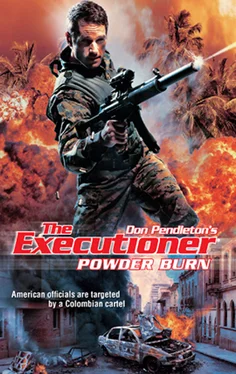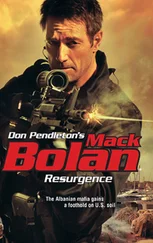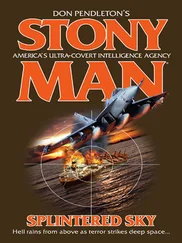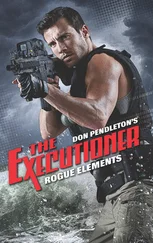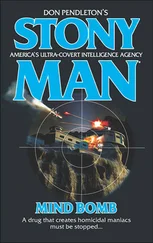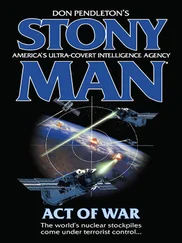The Pink Zone.
He supposed the district had been named for its high concentration of gay bars and other amenities serving the bulk of Bogotá’s LGBT community. There was more to the Pink Zone than gay life, however, including some of Bogotá’s most popular restaurants, nightclubs and stylish hotels.
Still homeless in the city, Bolan didn’t plan on checking into the Victoria Regia, the Andino Royal or any of their posh competitors. His contacts would be waiting for him at a relatively small sidewalk café, where they could watch the street and get to know each other briefly, prior to moving on.
Bolan would recognize his contacts from the photos Hal Brognola had provided, with their dossiers. One agent from DEA and one from the Colombian National Police, teamed to collaborate with Bolan in an atmosphere where trust was hard to come by and the lifespan of an honest law enforcement officer was often short.
Together, Bolan hoped they could accomplish something.
But if necessary, he could soldier on alone.
It wouldn’t be the first time—or, with any luck, the last.
Bolan spotted the Andino Mall and made a drive-by, picking out the open-air café, sighting his contacts at a table set back from the curb ten feet or so. Three chairs, and one still empty. Waiting.
The soldier drove around the block and found a parking garage, grabbed a ticket and parked three floors above street level, overlooking Carrera 11. He locked the Pontiac and pocketed his keys, then found the outer stairwell and descended toward the busy street.
“THIS MAN WE ARE SUPPOSED to meet. What was his name, again?”
Jack Styles resisted the impulse to smile. He knew damned well that his companion hadn’t forgotten the name. Arcelia Pureza never forgot anything.
“Matt Cooper,” Styles replied, adding, “That’s all I’ve got, aside from my HQ’s assurance that he’s pro material, experienced and off-the-books.”
“Clandestine operations,” Pureza said with a pretty frown.
“What else? After the latest…incident,” Styles said, resisting the temptation to say massacre or slaughter, “Washington isn’t about to send another diplomat.”
“You understand my delicate position in this matter,” Pureza said, telling, not asking, him.
“I understand your people have signed off on it,” Styles said. “Or so I was led to believe.”
“In the spirit, of course, they agree,” his companion replied. “But in practice—”
“It’s practice that matters,” Styles told her. “If spirit could win this thing, we’d have had it wrapped up years ago.”
Pureza nodded, toying with her wineglass on the tabletop. “Of course, you’re right. But you must understand the mind-set, Jack. After the killings, it became a matter of machismo, yes? A case of proving that the government cannot be frightened or intimidated.”
“But?”
“But anger fades,” she said. “And resolution, too, verdad?”
“Sadly, that’s true,” Styles granted. “Which is why we’re moving fast, before the brass can get cold feet.”
She nodded, sipped her wine, then said, “It goes beyond that, though. My people may regret what they have set in motion, if the resolution is not swift and sure. If there is…how do you say it? Collateral damage?”
“That’s how we say it.”
“In which case,” Pureza warned him, “the powers that be may attempt to distance themselves from the choice they have made. They may assert deniability, and leave us grabbing the sack.” Styles did smile then. “Holding the bag,” he said, gently correcting her. “And, sure, I’ve seen it done. The trick is to deliver, make it quick and clean—or quick, at least—and then get the hell out of Dodge.”
“Your Wild West, sí,” Pureza said. “Let us hope that your plan does not become our Alamo, eh?”
“I’ll drink to that,” Styles said, and drained his beer mug, flagging down the waiter for a refill. While he waited, Styles scanned the street, checked out the foot traffic, focused on men who fit the soldier profile.
Whatever in hell that might be.
Styles wished he had a photo of Matt Cooper, to confirm ID on sight, but the guy was too hush-hush for that, apparently. Or maybe someone in the States was worried about leaks, a very real concern with any operation undertaken in Colombia.
So Styles was flying blind, with Pureza riding his tailwind on faith.
He hoped they wouldn’t crash and burn.
“What time is it?” Pureza asked. She wore a watch, of course, but obviously had a point to make.
“He’s got five minutes,” Styles replied, after a quick glance at his Timex.
“And then we leave?”
Styles felt his temper fraying. “If you’re getting nervous, you can bail out anytime.”
“And leave you here alone?”
“I’m touched by your concern,” he said, letting the sarcasm leak through, “but I can handle it.”
“Support from my superiors is still conditional—”
“On letting you participate,” Styles interrupted her. “I got the memo. But who are we kidding?”
“I don’t understand.”
“Look, I know that your government cares about drugs. The folks on top are pissed about what’s been happening because it makes Colombia look bad. But face it, half the people offering condolences today are on the cartel’s payroll, and they’ll still be picking up their cash next week, next month, next year.”
“Unless we stop them,” Pureza said, with a glint of anger in her striking azure eyes.
“This shit’s been going on, with variations, since the 1970s,” Styles said. “I was in third grade when the Dadeland massacre gave Florida a wakeup call in 1979. You weren’t even born, for Christ’s sake!”
“And your point is?” He thought she looked pretty, even in her anger, trying to pretend she didn’t understand him.
“The names and faces change,” Styles said. “Lehder, Ochoa, Escobar, Londoño, Renteria—and Macario. They come and go, but none of them could operate for two weeks if your leaders really wanted to put them away.”
“And in your own country?” she challenged him.
“Corrupt as hell, no doubt about it,” Styles admitted. “But we don’t build special prisons so that drug lords can maintain their lifestyle in the joint, then give them weekend leave to the Bahamas. We don’t have Mafia bosses running for Congress or blowing up airplanes with a hundred people on board to kill one snitch.”
Pureza aimed a finger at his face. “Listen, Jack—”
But she was interrupted as a shadow fell across their table and a deep voice asked them, “Am I interrupting something?”
“IS THAT HIM?” JAIME Fajardo asked.
“It must be. He’s sitting down,” Germán Mutis replied.
“Let me see him again!”
Fajardo sounded excited, reaching for the compact binoculars Mutis was using to spy on the sidewalk café from two blocks away. Murder always excited Fajardo, but he liked the big, important killings best.
“He’s an American, all right,” Fajardo announced.
“I think so, too,” Mutis agreed.
They’d been expecting an American, another of the endless meddling gringos, but with no description that would help them spot him. Still, it was enough that the stranger would come from nowhere and sit down with two known enemies, Fajardo thought, a gringo DEA man and the cocky bitch from CNP headquarters.
“Shall I give the word?” Fajardo asked.
“Not yet,” Mutis said.
“But—”
“Not yet! Are you deaf?”
Fajardo slumped back into a sulk. Mutis held out an open hand, received the field glasses and raised them to his eyes once more.
There was no rush to give the word. Mutis observed the new arrival, watched him order from a smiling waitress who seemed taken with his looks. Mutis hired women when he wanted them, and didn’t have to ask if they were put off by his many scars.
Читать дальше
